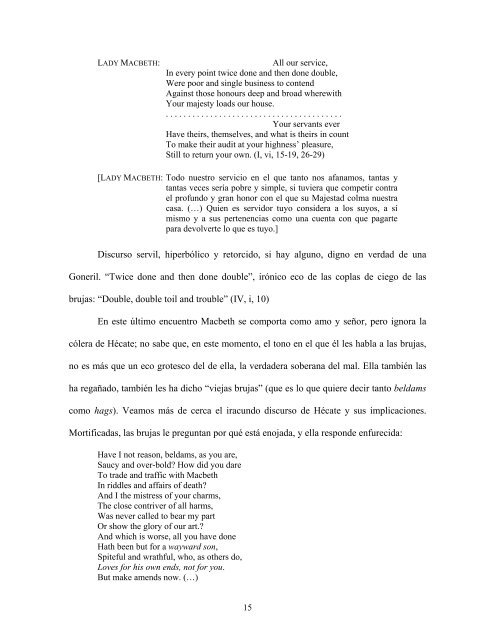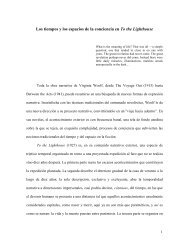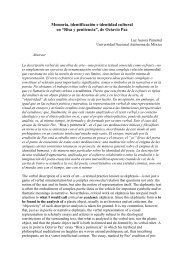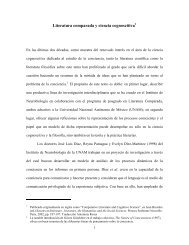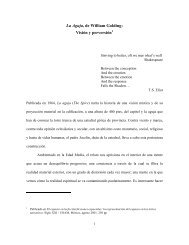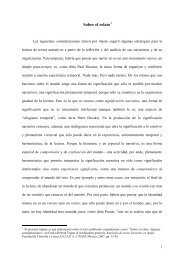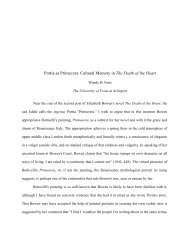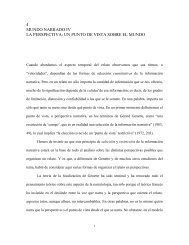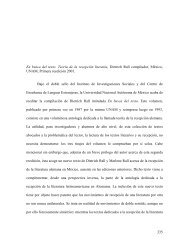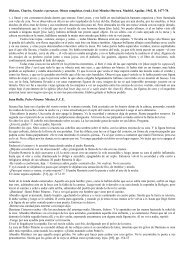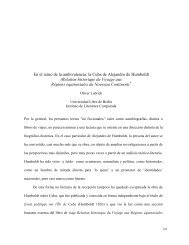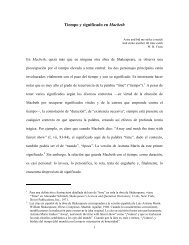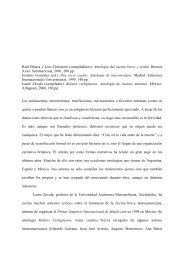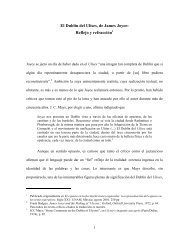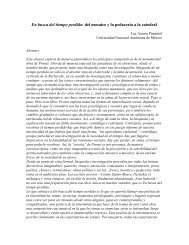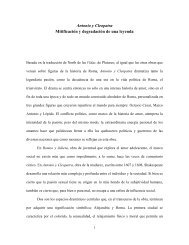La brujas en Macbeth: ¿hermanas fatídicas o sirvientas del destino
La brujas en Macbeth: ¿hermanas fatídicas o sirvientas del destino
La brujas en Macbeth: ¿hermanas fatídicas o sirvientas del destino
You also want an ePaper? Increase the reach of your titles
YUMPU automatically turns print PDFs into web optimized ePapers that Google loves.
LADY MACBETH: All our service,<br />
In every point twice done and th<strong>en</strong> done double,<br />
Were poor and single business to cont<strong>en</strong>d<br />
Against those honours deep and broad wherewith<br />
Your majesty loads our house.<br />
. . . . . . . . . . . . . . . . . . . . . . . . . . . . . . . . . . . . . . . .<br />
Your servants ever<br />
Have theirs, themselves, and what is theirs in count<br />
To make their audit at your highness’ pleasure,<br />
Still to return your own. (I, vi, 15-19, 26-29)<br />
[LADY MACBETH: Todo nuestro servicio <strong>en</strong> el que tanto nos afanamos, tantas y<br />
tantas veces sería pobre y simple, si tuviera que competir contra<br />
el profundo y gran honor con el que su Majestad colma nuestra<br />
casa. (…) Qui<strong>en</strong> es servidor tuyo considera a los suyos, a sí<br />
mismo y a sus pert<strong>en</strong><strong>en</strong>cias como una cu<strong>en</strong>ta con que pagarte<br />
para devolverte lo que es tuyo.]<br />
Discurso servil, hiperbólico y retorcido, si hay alguno, digno <strong>en</strong> verdad de una<br />
Goneril. “Twice done and th<strong>en</strong> done double”, irónico eco de las coplas de ciego de las<br />
<strong>brujas</strong>: “Double, double toil and trouble” (IV, i, 10)<br />
En este último <strong>en</strong>cu<strong>en</strong>tro <strong>Macbeth</strong> se comporta como amo y señor, pero ignora la<br />
cólera de Hécate; no sabe que, <strong>en</strong> este mom<strong>en</strong>to, el tono <strong>en</strong> el que él les habla a las <strong>brujas</strong>,<br />
no es más que un eco grotesco <strong>del</strong> de ella, la verdadera soberana <strong>del</strong> mal. Ella también las<br />
ha regañado, también les ha dicho “viejas <strong>brujas</strong>” (que es lo que quiere decir tanto beldams<br />
como hags). Veamos más de cerca el iracundo discurso de Hécate y sus implicaciones.<br />
Mortificadas, las <strong>brujas</strong> le preguntan por qué está <strong>en</strong>ojada, y ella responde <strong>en</strong>furecida:<br />
Have I not reason, beldams, as you are,<br />
Saucy and over-bold? How did you dare<br />
To trade and traffic with <strong>Macbeth</strong><br />
In riddles and affairs of death?<br />
And I the mistress of your charms,<br />
The close contriver of all harms,<br />
Was never called to bear my part<br />
Or show the glory of our art.?<br />
And which is worse, all you have done<br />
Hath be<strong>en</strong> but for a wayward son,<br />
Spiteful and wrathful, who, as others do,<br />
Loves for his own <strong>en</strong>ds, not for you.<br />
But make am<strong>en</strong>ds now. (…)<br />
15


